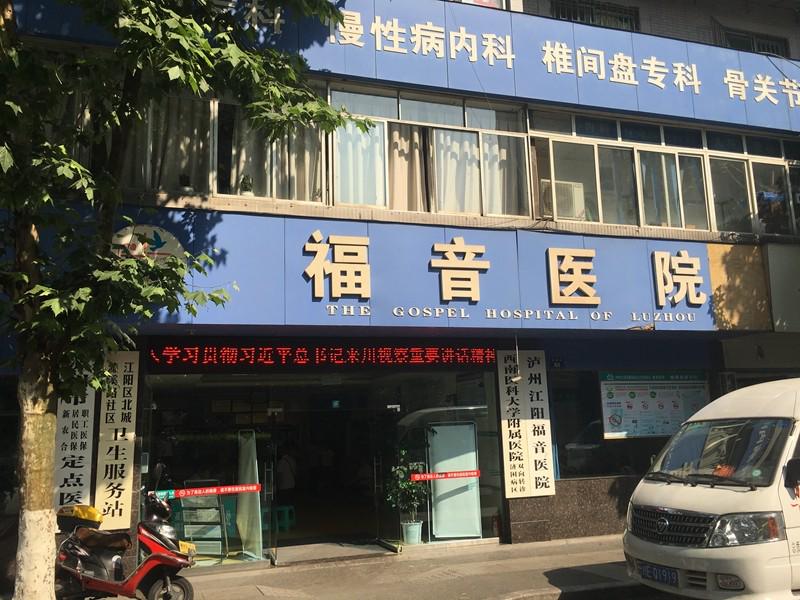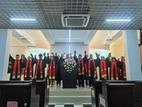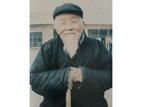The spirit of the gospel is sublime and great, but often releases its glamor in lowliness and commonness.
The Gospel Hospital of Luzhou, Sichuan, started with a small clinic that grew into a community health center, committed to its mission -- providing affordable and good medical service to every patient. Now it serves a whole local community of over 10,000 people.
A difficult start with a pure heart to serve
Wu Xiaoyan, the head and director of the hospital's financial department and public health department, recalled the founding days of the gospel hospital. Rev. Liao Xiaoqin from the church in southeastern Sichuan, Luzhou, is also the initiator and witness.
The hospital was originally a temporary pharmacy established by a Canadian missionary in 1911, who later converted it into a gospel clinic. Two years later, western missionaries rebuilt into the first western medicine hospital in Luzhou, which was named "Luzhou Gospel Church".
During the National Protection War, a civil war that occurred in China between 1915 and 1916, the hospital served soldiers and civilians, known as the most beautiful "gospel" to patients for its outstanding skills in orthopedics. According to the memoir of I. E. Revelle, Canadian, president of the Luzhou Gospel Hospital at the time, "All the patients, from little beggar boys to local officials, showed friendship and respect toward Gospel Hospital."
During World War II, it played a role in life-saving work but was bombed by the Japanese army in October 1939. Six years later, it was rebuilt and renamed "Luzhou Christian Renji Hospital". In 1950, the hospital was taken over by the government and merged into the local public hospital. In 2000, the local Christian churches restarted the medical project --- a gospel clinic was founded despite a lack of money, doctors, and space.
"We only had faith as small as a mustard seed then and prayed every day." Rev. Liao said that she and two other doctors often went to the countryside. She preached in the local churches and the two who carried medical kits on their backs healed patients.
Qian Wanyong, the hospital's director, shared the financial difficulty of the early days. Despite that the hospital wanted to be self-sustaining, there were only some medical college graduates and other staff working in the hospital, who received a monthly salary of 400 yuan for half a year. To deal with the financial dilemma, Qian, an experienced bone doctor, performed broken leg surgeries almost on his own, which saved human capital and money. When the operating performance turned better, the hospital began to hire professional doctors and nurses.
Serving patients with affordable service
In 2002, the clinic was separated from the church and relocated in a house with an area of 70 square meters (0.017 acres) . Supported by the local health authority, it became the city's first model community healthcare center that served more than 10,000 residents. In 2007, it was honored an outstanding community medical service center by the Sichuan government.
Three years later, the financial support from Hong Kong Medical Care Co., Ltd, the Evangelical Lutheran Church in America (ELCA) and the donations of Nanjing Amity Foundation brought about the "resurrection" of Gospel Hospital. The Gospel Hospital was able to be rebuilt for the third time and renamed Luzhou Christian Church Gospel Hospital, becoming the first church hospital to be rebuilt in mainland China. The net area exceeded 3,500 square meters (0.86 acres).
The government allowed the new rural cooperative medical care system and medical insurance to cover the hospital and set up a care fund to help poor people.
In 2016, the hospital opened a branch in Luxian County that has over 300 medical staff and more than 400 beds. Sometimes patients are too many, so some of them have to lie on the beds placed in the hospital corridor. It gives profits back to society, reducing the medical costs of over one thousand poor patients.
The spirit of the gospel is revealed in the moving stories of patients.
Director Qian said that a left-behind child who lived with his grandmother was struck by a car, but the driver ran away. After seeking treatment in several hospitals for his broken leg, he ran out of money and had to leave. Knowing his condition, Qian had a free surgery for him. Qian gave him an IOU that read, "When you are capable to help others someday, I wish you to pay the debt of love." When he recovered, he and his grandmother gave a basket of cabbage to the hospital staff to express their gratitude.
Once the hospital raised a fund of 20,000 yuan to make a prosthetic leg for a desperate elderly person.
Another story. A paralyzed woman went to many hospitals that failed to identify the cause but was diagnosed with multiple myeloma after seeing the hospital's doctor. The only cure was an operation that may cost 200,000 yuan. However, she just spent over 20,000 yuan for the operation.
"For financially disadvantaged individuals, the hospital's treatment alleviated the country's burden." Said Rev. Liao.
Before taking the post of the hospital's director, Qian, a distinguished doctor, was just a volunteer who wanted to open his own hospital. His ambition was to actually help patients and particularly, to provide cheap medical service to poor patients. After contacting the staff, he felt that Christians were different from other people and became a Christian.
"I've been providing free treatment to five poor people every month, and meanwhile preventing it from affecting the hospital's earnings." The salaries of doctors are decoupled from the patients, so the hospital encourages doctors to see more patients. Needy patients are free to receive treatment.
"Apart from faith and love, church hospitals should pay attention to biblical wisdom and management principles to achieve better results. In this way, it can employ better doctors, improve medical skills, and earn more to help the underclass. " Said Qian.
"It's a new exploration in mainland China on how to build church hospitals."
The director pondered over some questions in the recent years and wanted Christians who desired to be involved in medical service to think about them.
First of all, what was the purpose of the church hospital and how to maintain the spirit of the gospel?
Second, how to attract medical talents? A hospital that has only volunteers without doctor is not a hospital at all.
Third, how to make a correct and stable mechanism to balance the medical service and benevolent deeds?
Fourth, is it prepared for any deficit someday?
Currently, the gospel hospital faces a challenge: to replace its old equipment with new one. Some aging medical equipment has been used for seven or eight years.
- Translated by Karen Luo












